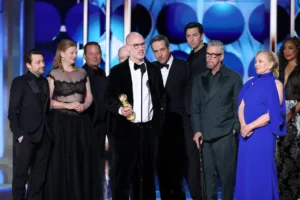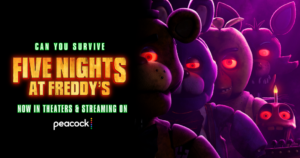Pop Is Purple: Prince Lives On
On Wednesday, April 20th, within the suburbs of Paisley Park, Minnesota, locals believed to be witnessing local celebrity Prince riding his bike leisurely throughout the quiet town. Despite being aware of his requests not to be photographed, many passerby couldn’t resist not pulling out their cell phones to record videos and snapshots of the event. Little did the fans know that this would be the last public appearance of the famed musician, forever.
Prince Rogers Nelson was born on June 7th, 1958 to Mattie Della and John Lewis Nelson, both African American classical and jazz musicians. Prince wrote his first tune, “Funk Machine”, on his father’s piano when he was seven, and joined many disco-era influenced groups in high school during the 1970s. Named after his father, whose stage name was Prince Rogers, the elder Prince has has been quoted as explaining, “I named my son Prince because I wanted him to do everything I wanted to do”.
While the musician managed to skyrocket into the spotlight with his debut album reaching No. 4 on the Billboard Top R&B Albums and releasing two certified hits, the persona that belonged to the emerging superstar was growing. Early on in his career, Prince became renowned on and offstage for his flamboyant style and showmanship. He came to be regarded as a symbol for his androgynous persona, ambiguity of gender, and defiance of racial stereotypes. His amorphous-gendered look has been compared heavily to that of David Bowie. He has also been noted for the strong female presence throughout his discography, backing members and his overwhelming support for women in the music industry throughout his career. Upon his death in April of 2016, Senator Amy Klobuchar (D-MN) stated, “He was a superstar composer, an amazing performer, and a music innovator with a fierce belief in the independence of his art.”
“I think he became as famous as he was for the distinctive sound of his music as well as his equally distinctive personality,” said Hills West senior Brandon Epstein. “The sound of Prince’s work heavily influenced ’80s music and, indirectly, contemporary music … and that means that what we hear today has a little bit of Prince Rogers Nelson mixed in. It has an interesting feel to it, a feel I think quite a few artists [have] tried to emulate. The electronic instrumentation is very prominent, [much like the music of today].”
Prince emerged onto the 1980s music scene with a genre as ambiguous as his persona – an “uncategorizable hybrid” of funk, soul, rock, and pop from which the very foundation of pop music today is based upon. His poetic, soulful falsetto has inspired contemporaries such as Pharrell Williams, D’Angelo, and Justin Timberlake. That alone speaks volumes for the depths of his talents, but what’s important to remember is the sheer amount of things that are commonplace today that Prince did first. Nobody was mixing electronic sounds, synths, and drum machines with R&B before Prince. That alone describes almost the entirety of R&B and Pop music today. By meticulously recording, tracking and playing (up to 23 instruments on a single record), manipulating recorded vocal pitches, even going as far as granting his album character a name – Camille – and recording a whole album under that character name. His lavish keyboard arrangements and frank sexual lyrics elicited a cultural breakdown that inspired the likes of Madonna and Parental Advisory stickers in equal measure. In fact, his contemporary influence spans so many genres that his signature use of stylistic drum machine patterns is almost impossible not to be heard on almost any current hip hop track.
Many of Prince’s contemporaries acknowledge the stamp that the legend has put on the music industry as The Weeknd was quoted saying, “Prince was always just pushing the envelope. Michael was doing that too, but he wasn’t as experimental. Prince turned experimental music into pop music.” Justin Timberlake, in turn, stated: “Prince, to me, is the ultimate artist. The thing that I love about Prince is he really makes his own rules, and I think that in creating something like music, you really shouldn’t have any rules.”
In fact, the cultural imprint that Prince left transcends music itself – the innovator changed how people wrote, substituting “U” for “You” in his song titles and lyrics long before texting and its consequential slang popularized. His semi-autobiographical movie “Purple Rain,” changed the way people looked at the 80’s as an era: it shaped 1980s fashion trends and even facilitated the use of makeup for men long before the term “guyliner” was legitimized. He changed how people spoke and created popular phrases, inserting the infamous line “Party Like It’s 1999” into pop culture long before the final countdown of the 20th century.
Indeed, the Artist Formerly Known As Prince has truly not left us entirely, and perhaps he never will: his influence on a plethora of pop culture, music and style icons to this day is running strong and is showing no signs of stopping. There is absolutely no denying that, from Madonna to Justin Timberlake to Drake, there is a sound originating from none other than the Purple One himself.








